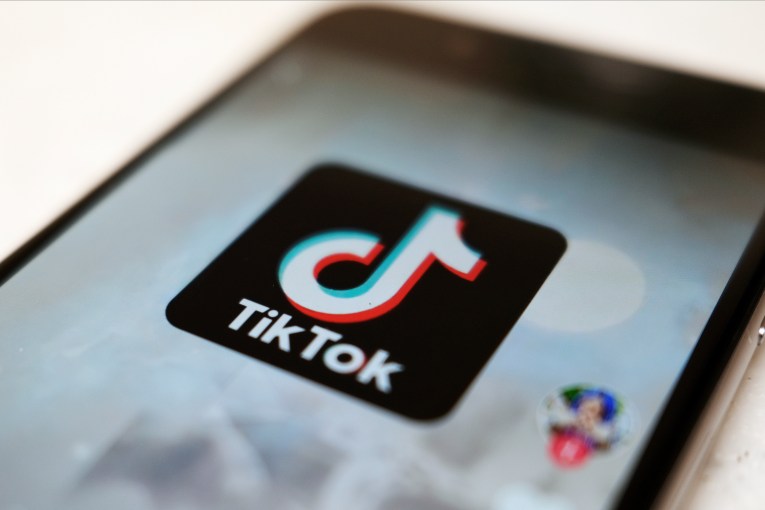Trapped and scared: Modern slavery worsens during coronavirus pandemic

After helping rescue an elderly man who had been a slave almost all of his life, one of human rights investigator Gary Shaw’s colleagues asked: “Have we done the wrong thing?”
The man had been forced to work without pay since he was a child.
He was now in his 70s and being handed a piece of paper that said he was free from the debt his sick parents racked up after borrowing less than $20 from a loan shark for medication several decades earlier.
Except this new-found freedom left him distressed, and to the rescue team he appeared disoriented and lost after walking out of the brick-manufacturing compound where he had spent the bulk of his life.
The investigators couldn’t help but for a moment question if the man would’ve been better off remaining there as a modern-day slave.
Suddenly, the man regained his composure and, looking his rescuers in the eye, said:
I would rather die than spend one more day as a slave.”
His experience is incredibly common. And it is becoming even more so during the coronavirus pandemic.

The man in debt bondage had his freedom taken away at a very young age. Photo: Getty
The United Nations estimates the number of modern slavery victims is more than 40 million, with forced labour in the private sector most common.
This year, for the first time, Australian companies with a turnover of more than $100 million will be submitting their plan of action to address the risks of slavery in their supply chains, as required by the 2018 Australian Modern Slavery Act.
What the coronavirus pandemic has done, experts in the field warn, is put already vulnerable, potentially exploited workers at serious risk of getting trapped in modern slavery in Australia and across the globe.
COVID has ignited the fuse of a time bomb that was already causing so much devastation to so many people.”
Former New Zealand Police Detective and human rights investigator, Gary Shaw
The man in India rescued by Mr Shaw’s team would have been completely oblivious as a young boy to the fact that his life was being traded in as the down payment on a once-off loan of less than $20.
The loan came with an interest rate so exorbitant, the boy would have to labour his whole life to clear his parents’ debt.
His parents eventually had to resign themselves to the fact that he “is now and forever” a slave – despite it being illegal, said Mr Shaw, now the Corporate Social Responsibility Manager at Kathmandu.

Gary Shaw spent four years at the International Justice Mission in Washington DC, before starting a New Zealand anti-trafficking organisation.
Just like him, millions of people find themselves in forced labour.
They could be on a farm picking fruit or in a factory making your clothes.
But behind closed doors, they are facing threats ranging from physical violence to having their passports taken away if they don’t do as they’re told.
Differentiating between someone who is being underpaid or exploited and a victim of forced labour means understanding whether there are consequences or retaliation from their employer were they to quit, said Heather Moore, policy lead on modern slavery for The Salvation Army.
The distinction is not always so clear-cut.
In COVID-times, people are having to choose to either go into poverty or accept work in substandard conditions, said Alexandra Baxter, modern slavery researcher at Flinders University.
“The ones who are exploiting these people and who are forcing them to work [more hours which breach their visa conditions], not paying them properly, or forcing them to work in poor conditions – and sometimes there are situations of sexual assault as well, particularly in terms of women – this amounts to slavery and slavery-like practices,” she said.
“We know that COVID has caused an increase, and it will likely continue to cause an increase of people subjected to exploitative conditions, modern slavery [and] slavery-like practices.”
COVID-19 has limited migrant workers’ freedom to leave an employer, said migration researcher Henry Sherrell.
Those who were sponsored by an employer to come to Australia and work don’t have the luxury of quitting at the drop of a hat because they could lose their visas and end up in an immigration detention centre.
The pandemic means these people can no longer just wait until their visa expires to escape from their employer and return home, Mr Sherrell said.
A survey in July of more than 6100 temporary visa holders found one in five could not return home.
“If an employer knows that you’re unable to return home, that creates the potential for more exploitative work practices,” Mr Sherrell said.
What “happens a lot”, Ms Moore said, is international migration brokers and labour-hire companies telling people from overseas they can secure them a work visa and a job in Australia for a few thousand dollars.
Too often, people arrive in Australia to find they don’t have a legitimate work visa, that they’re on a tourist visa, and they have no work rights, she said.
“Then the employer says, well, you’re working illegally. And so if you tell anybody that I’m not paying you properly, I will have you deported.”
That serves to keep the worker silent.
“I’ve seen cases where workers would take out loans from organised crime syndicates and loan sharks, like really dangerous people – people that you have to pay back,” Ms Moore said.

Heather Moore says if a worker does not have the freedom to leave a job, they could be a modern slave.
They then find their employer is deliberately underpaying them their wages and overcharging them for accommodation and transportation.
Meanwhile, some labour-hire operators or human traffickers inflate debts or impose unexpected charges on workers when they arrive in Australia, Ms Moore said.
It could be that “I thought I had to pay you $4000. And now I’ve gotten here and you’ve told me suddenly that I actually owe you $8000”, Ms Moore said.
There are real fears their family could be burdened by the debt and that puts the employee in a situation where they’re having to work for little to no pay.
“They may feel that if they complain, or kick up a fuss, or report the unlawful conduct, that they will not only get into trouble themselves, but they will lose the opportunity to earn,” Ms Moore said.
She said these vulnerabilities are particularly acute among workers who arrived in Australia under the Seasonal Worker Program or Pacific Labour Scheme.
Ms Moore believes the majority of employers, at least on the Seasonal Worker Program, are labour-hire companies.
She said it is “not typical of Pacific Island cultures to complain or to speak against people in positions of power and authority”, making them targets for exploitation.
Migrant workers are far from the only ones at an increased risk of being forced into labour.
Taking out personal loans may be the only option for thousands of people who, because of their status in Australia, can’t access certain financial supports from the government amid COVID-19.
They include asylum seekers, international students and other temporary visa holders.
Living in an employer-provided accommodation where social distancing isn’t possible, being unable to or having limited access to healthcare, and the lack of available jobs makes them “extremely vulnerable to exploitation” and “so desperate to survive” that Serena Grant from international human rights group Walk Free sees “a lot more people” ending up in debt bondage.
“The fear is they’re often told if they don’t pay off that debt, that the debt will transfer to their family back home, or they might be threatened with physical violence themselves or their families,” Ms Grant said.
“It’s all of these risk factors combined, that really create a perfect storm for modern slavery to flourish.”








